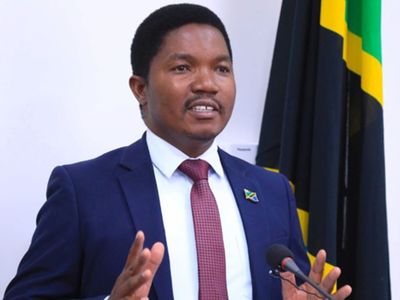…As nation awaits fresh debate on ex-gratia benefits
Rumours continue to swirl around President Nana Akufo-Addo about his retirement plans after handing power over to his successor on January 7, 2025.
Among the claims is that, the President, who is 80, has bought a plush home in Europe, where he intends to live the rest of his life.
This is coming as the country prepares for another controversy over ex-gratia for public office holders under Article 71 of the 1992 Constitution and the benefits the President is entitled to upon retirement.
Per constitutional arrangements, the gratuity payable to a President upon retirement, comprises not only cash, but also offices, a retirement home, staff, and vehicles.
Akufo-Addo’s alleged retirement home, is said to be in Nice –France, where he once lived and practised law with Coudere Freres or Coudert Brothers from 1971 to 1975.
Reports are that, the President had long planned his retirement, and had acquired the said French home, some three years ago.
People familiar with the claim told The Herald that it is widespread, particularly inside the presidency and within government circles. It doesn’t appear to be a secret.
However, there are additional claims that, he has also bought another home in London, which he considers his second home. He lived and schooled there, particularly at the University of Oxford, which he couldn’t complete.
The president, has also been linked to yet another property, a plush building at Peduase near Aburi in the Eastern Region that overlooks the city of Accra. Ex-President John Agyekum Kufuor, has a similar retirement home at Peduase.
The issue of ex-gratia and how an outgoing President is to be treated, have always sparked controversy every eight years, following a change of government.
It is started with claims the Kufuor administration, varied the retirement package awarded to the late ex-President Jerry John Rawlings, despite the recommendations of the Prof Miranda Greenstreet Committee set up by then President J.J. Rawlings on ex-gratia for Article 71 officeholders in the Executive arm of government.
Kufuor, himself was embroiled in yet another controversy, when the report of the Mary Chinnery Hesse Committee on his ex-gratia, became public, with people describing his gratuity as outrageous.
Prof. John Evans Atta Mills, who succeeded President Kufuor, under pressure appointed the Ishmael Yamson Committee, which later changed to the Prof. Ewurama Addy Committee, to review his predecessor’s entitlements.
Under President Akufo-Addo, ex-President John Dramani Mahama, sometime in September 2022, described as “absolute lies” claims by the Bono Regional Chairman of the New Patriotic Party, Kwame Baffoe alias Abronye DC, that he (Mahama) received an ex-gratia of GH₵14 million in 2013 and GH₵15 million in 2017.
According to Mr Mahama, the only payment the Akufo-Addo government made to him through the Accountant General in 2013 was GH₵230,000. “No ex-gratia, I was paid 230,000 as salary arrears in 2013,” Mr Mahama, said in an interview on TV3.
Mr Mahama, who was kicked out of the official bungalow, he occupied as Vice-President and President by the Akufo-Addo government, despite agreeing to let him stay in the bungalow as part of his ax-gratia, said he was willing to show his bank statements to the press in his defence, adding that the only privileges he had received since leaving office was his monthly pension.
He also mentioned all the other payments he makes himself, including water, electricity, rent, fuel, medical and air tickets for travel.
“Later, if you want we can call a group of you journalists, of course, I don’t want to publish my bank statement but I can put it before you and you can look through all the payments and see if there is a 14 million cedi payment. I didn’t receive any such payment,” Mr. Mahama said.
“I receive only my monthly pension like President Kufuor and President Rawlings was receiving before he died. That is all I get. “I pay the electricity bill for my house and my office, I pay the water bill for my house and my office. I live in my own accommodation so the State does not pay me anything for accommodation.
“They haven’t given me an office, I rent an office in East Cantonments, I pay the rent myself, I pay my own fuel, the State doesn’t give me fuel, I pay my own domestic staff, I pay my own medical bills, I pay my own air tickets when I travel…”.
On Tuesday, 19 January 2016, then-President Mahama, appointed a new five-member committee to recommend his compensation package, including emoluments and ex-gratia and that of other Article 71 office holders.
Apart from the president and his vice, other public officers whose emoluments are determined under Article 71 of the 1992 Constitution, include Members of Parliament, Ministers of State, the Chairman and Members of the Electoral Commission, and judges among other high-profile officers.
The committee, had Professor Dora Francisca Edu-Buandoh as the chairperson, with Kwamena Ahwoi, a former Minister of Local Government and Rural Development, Dr William Baah Boateng, Mrs Norkor Duah and Ms Lydia Bawa, Insurance Commissioner, as members.
The committee was assisted by Napoleon Kpoh, formerly of the Industrial Commercial Workers Union (ICU), as Consultant and Rudolf Kuuzegh, as Secretary.
In September, last year, President Akufo-Addo, called for a debate to arrive at a constitutional decision on the entitlements of Article 71 Officeholders, because the public was concerned about the matter.
He set the tone with a suggestion that the country, among others, must examine the practice of other jurisdictions such as the United States of America, where the principles were established and automatically adjusted according to certain objective criteria.
He further averred to the newly constituted Committee of Emoluments for Article 71 Officeholders to consider public concerns about whether or not such officeholders, notwithstanding the constitutional imperative, deserved what was paid to them in view of the current economic challenges.
President Akufo-Addo, made the call when he swore in a five-member Committee of Emoluments for Article 71 Officeholders at the Jubilee House in Accra.
The committee is chaired by a lawyer and immediate past Chairperson of the Public Services Commission, Dr Janet Ampadu-Fofie.
The members are, the Chairman of the National Development Planning Commission, Professor George Gyan-Baffuor; a lawyer and women’s rights activists, Gloria Ofori-Buadu; a research fellow at the Institute of Statistical, Social and Economic Research (ISSER) of the University of Ghana.
They swore the Official Oath and Oath of secrecy. As the terms of reference, the committee is to make recommendations in respect of emoluments and other privileges for Article 71 Officeholders as specified under the Constitution.
The committee is also to examine any other relevant matter which it deems appropriate to its work. President Akufo-Addo indicated that in recent times, there had been public discourse surrounding the remuneration of public officers which had centred primarily on those of Article 71 Officeholders.
Public the debate, the President explained, had centred on “whether or not notwithstanding the Constitutional imperative, we are deserving of what is being paid to us in view of the challenges currently confronting our national economy”.
He, therefore, suggested to the committee that it might well be that their work should also focus on those concerns and make recommendations on how they should be addressed. President Akufo-Addo stated that it appeared that every President of the Republic was bound by the constitutional injunction to establish the Committee of Emoluments for Article 71 Officeholders to consider the emoluments of Article 71 officeholders.
“I think it may be worth our while to examine the practice of other jurisdictions. For example, the American one, where the principles are established and automatically adjusted according to certain objective criteria,” he added.
Article 71
The inauguration of the five-member committee, is sanctioned by Article 71 (1) of the Constitution which requires the President to set it up to determine the salaries and allowances payable, and the facilities and privileges available to his office, the Vice-President, the Speaker and Members of Parliament and a group of nine officeholders spelt out in that Article.
The recommendations of the five-member committee are subject to the approval of the President and Parliament.
The composition of the committee is done on the advice of the Council of State.
“I’ve appointed you to this committee on the advice of the council of responsible Ghanaians as eminently qualified to undertake this important function and I congratulate each and every one of you on your appointment,” President Akufo-Addo said.
He urged the committee to bring to the table the work of previous committees, namely those chaired by Miranda Greenstreet, Mary Chinnery Hesse, Ishmael Yamson, Marian Ewurama Addy, Francisca Dora Edu-Buandoh and Yaa Ntiamoah Badu, in the conduct of their work to be able to establish some consistencies.
The President, also reminded members of the committee that the task ahead was a challenging one but it was his expectation that they would be up to it and deliver their report expeditiously.
President Akufo-Addo, assured the committee of his full support for the assignment, as well as his government’s assistance if needed throughout the period of their work.
On behalf of the committee, Dr Ampadu-Fofie, commended the government and the Council of State for their confidence, she assured them that they would work diligently and expeditiously to deliver on their mandate.
The Speaker of Parliament, Alban Sumana Kingsford Bagbin, recently reiterated that the money paid to Members of Parliament (MPs) and other Article 71 Officeholders every four years, was accumulated salary arrears (gratuity) and not ex gratia.
He said at the beginning of every Parliament, most legislators, including himself as the Speaker, did not know the exact salary they were entitled to until the end of their four-year term; a practice he described as “wrong”.
The Speaker, explained that whenever Ghanaians talked about the budget for Parliament, they considered such budget as money earmarked for salaries and conditions of service of MPs, “especially what people refer to as ex gratia.”
“Gratuity is different from ex gratia; what they pay MPs is gratuity and it is another wrong practice because as we sit here in our third year, which is three years down, I as the Speaker do not know my salary,” he revealed.
Speaking during a visit to the Graphic Communications Group Limited (GCGL), Mr Bagbin said: “My salary has not yet been fixed and so every month I am paid something based on what my predecessor was earning.’’ “But we all know from the labour front that every year they try to renegotiate with the government and so at the end of the four years then they (government) come out with your salary.”
“And that will definitely be higher than the first year and so they have to pay you arrears. It is those arrears that balloon to what the Members of Parliament take at the end of four years and people call that ex gratia and you get the problem,” the Speaker explained.
The post Reports of Akufo-Addo’s French retirement home engulf gov’t appeared first on The Herald ghana.


